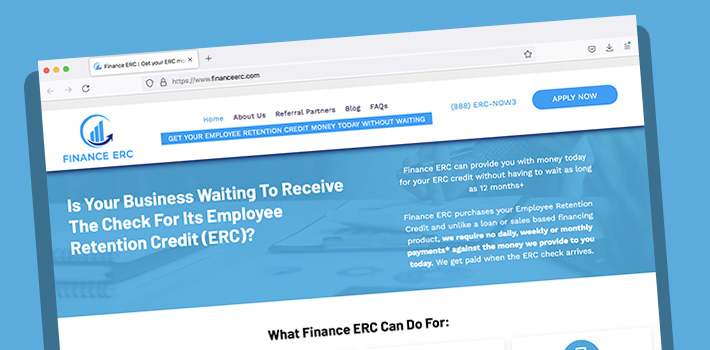Archive for 2023
Welcome to deBanked CONNECT
January 19, 2023
Welcome to deBanked CONNECT MIAMI. If you’re registered for today’s event, check-in begins at 1pm. The Miami Beach Convention Center is BIG so here’s some tips to find us:
You must enter the Convention Center from the Convention Center Drive side, not the Washington Ave side. Enter through the Convention Center Drive side into the main lobby and approach the escalators on the far right side. Go up them and follow the signs towards Sunset Vista, which is up another escalator. You’ll find it.
There is no walk-in registration. You must already have been registered to get in today. It is too late to buy a ticket.
Our team will be very busy with producing today’s event, but if you have a question, email events@debanked.com.

eCapital names Todd Zarin as Chief Legal Officer
January 17, 2023MIAMI – January 17, 2023 – eCapital Corp. (“eCapital” or “the company”), a leading finance provider for businesses across North America and the U.K., today announced the appointment of Todd Zarin as chief legal officer. As part of the executive leadership team, Zarin will oversee eCapital’s in-house legal team and be responsible for all legal operations for the company.
“Todd’s proven aptitude and demonstrated ability to skillfully navigate complex legal scenarios make him a valuable addition to our executive leadership team,” said Marius Silvasan, chief executive officer of eCapital. “I am confident his expertise will prove instrumental as we continue to enhance our service offerings and expand into new markets to meet the financial needs of even more organizations.”
Zarin’s legal and corporate career spans more than 20 years, with strategic roles helping public and privately held clients in financial services and other industries succeed while navigating critical moments. Throughout his career, Todd has been instrumental in driving business objectives such as strategic mergers and acquisitions, securing funding through various transactions, and guiding companies through initial public offerings. He also provided guidance and direction on corporate governance and securities law compliance matters.
As a seasoned lawyer and board member, he has served clients in multiple capacities, including as general counsel to a South Florida financial services company and as outside counsel with premier law firms such as Weil, Gotshal & Manges and, most recently, as a shareholder at Miami-based Stearns Weaver Miller. Zarin has also helped clients as a strategic and transactional advisor through his own consultancy.
“eCapital’s unique approach to strategic growth while changing the shape of the alternative finance and lending landscape is exciting,” said Zarin. “The leadership team has a well-defined and ambitious vision for the future, and I look forward helping achieve the company’s long-term goals and continue driving the company’s dynamic growth trajectory.”
Zarin is a member of the Florida and New York bars and earned his Juris Doctor from Brooklyn Law School. He also holds a Master of Business Administration from the Kellogg School of Management at Northwestern University.
About eCapital Corp.
eCapital is committed to accelerating access to capital for companies in the United States, Canada, and the U.K. By leveraging a team of over 800 experts and proprietary, industry-leading technology, eCapital is creating the future of business funding. With a full suite of products such as freight factoring, invoice factoring, lines of credit, asset-based lending, payroll funding, and equipment refinancing, eCapital ensures businesses have the funds they need to do more. Through its Transportation, Staffing, Wellness, Healthcare, Factoring and ABL divisions, eCapital delivers customized funding solutions for over 80 industries. To learn more about eCapital, visit eCapital.com.
# # #
deBanked CONNECT MIAMI is Thursday
January 17, 2023deBanked CONNECT MIAMI takes place this Thursday. This event is sold out and no walk-ins will be accepted.
For registered attendees, please take care to note that check-in BEGINS AT 1PM on January 19th at the Miami Beach Convention Center. The agenda can be found here. The networking reception ends at 8pm.
deBanked CONNECT events (Miami, San Diego, Toronto, etc.) are different from Broker Fair, which takes place each year in New York City.
This will be deBanked’s 5th event in Miami since 2018. It’s the ultimate networking experience for brokers, lenders, funders, fintech, collectors, lead generators, investors, software companies, law firms, and more. Thank you to Bitty Advance for being this year’s title sponsor.

New Info On The End of LoanMe
January 16, 2023 It was originally communicated as “market conditions.” That’s what NextPoint Financial, LoanMe’s parent company, announced in June 2022 as the reason that it was winding down LoanMe’s business. The news shocked the world because LoanMe had just been acquired by NextPoint for a price of more than $100M.
It was originally communicated as “market conditions.” That’s what NextPoint Financial, LoanMe’s parent company, announced in June 2022 as the reason that it was winding down LoanMe’s business. The news shocked the world because LoanMe had just been acquired by NextPoint for a price of more than $100M.
Now, after many delays, NextPoint has finally filed its 2021 financial statements, and with that more information about what happened with LoanMe.
Around the time it was being acquired (In Q1 2021), LoanMe transferred the majority of its loan portfolio to sub-servicers to “secure expected financial and operational efficiencies,” the report states, but “transition challenges negatively impacted loan performance and servicing costs.” The problems were allegedly so bad that in March 2022 they had to move the loan portfolio to yet another sub-servicer.
“LoanMe’s management’s attention was diverted from loan production to sub-servicer oversight,” the report states. This, when combined with lower than expected originations due to a competitive lending environment made for a challenging situation.
On May 9, 2022 LoanMe filed a lawsuit against loan servicer Amerifirst Home Improvement Finance LLC in Delaware Superior Court over alleged failures to live up to its loan servicing contract. Amerifirst filed counterclaims against LoanMe on November 3rd. The case is pending.
The tide of events had already overcome the company, however. On June 21, NextPoint announced that LoanMe would cease loan originations but would continue to service outstanding loans. LoanMe’s report attributes this final decision to an “elevated rate of charge-offs” and “a significant shortfall of cash being generated versus the amount required to fund the operations.”
Three months later, NextPoint decided to unwind LoanMe from its business altogether.
LoanMe originated both consumer and business loans. Its business loans ranged from 2-10 years. Business loan customers had an average FICO score of 692.
From Zero to $28 Million
January 12, 2023 Back in June 2022, Eddie DeAngelis was getting ready to launch QualiFi in a Philadelphia suburb. After having started in the industry as President and partner with Bizlender in 2013 and then founder and CEO of Amerifi, LLC in 2017 (later acquired by Nav Technologies Inc.), success for DeAngelis’ newest startup was bound to draw heavily on the experience he had gained throughout his career. But, times had changed a little.
Back in June 2022, Eddie DeAngelis was getting ready to launch QualiFi in a Philadelphia suburb. After having started in the industry as President and partner with Bizlender in 2013 and then founder and CEO of Amerifi, LLC in 2017 (later acquired by Nav Technologies Inc.), success for DeAngelis’ newest startup was bound to draw heavily on the experience he had gained throughout his career. But, times had changed a little.
“In my opinion, this is probably the hardest and most competitive over the last 10 years this business has ever been,” he told deBanked. “Every deal shopping around, they’re working with multiple brokers…”
QualiFi connects businesses with funding sources. Real estate loans, AR financing, PO financing, equipment financing, and term loans are among their core products. It’s not a revolutionary business model in that of itself. The key is in execution, which by any measure the company seems to be accomplishing quite well so far. In August alone, QualiFi closed 33 deals for a total of $2.4M in financing and continued the streak until November when it eclipsed $11.3M in just one month split across 57 deals.
In roughly less than seven months since launch, DeAngelis said they’ve surpassed $28M in closed deals. To be sure, DeAngelis doesn’t take all the credit for the impressive start. Jason Maury, a QualiFi partner and VP of Sales, has been instrumental in executing the company’s strategy, DeAngelis said. Part of that strategy he shared.
“99% of all our traffic is from inbound leads,” DeAngelis said. The company runs a variety of marketing campaigns that includes social media but nearly half is attributable to referral partners.
“We have banks, a couple of credit unions, and CPAs that we work with that send us some of their clients that are either maxed out on their line of credit or just simply can’t get approved from the bank,” he said.
The company doesn’t take any of those relationships for granted, which means QualiFi reps need to be qualified to take on their tasks.
 “We have an approximate five week on-boarding process for all new hires,” DeAngelis explained, adding that it’s one of the most intensive sales trainings out there. New people to the business must go through it before they get on the phone with potential customers. All of that training is on-site at the company’s office, not something that is offered remotely. Doing this business in person is something QualiFi puts a high value on as the team is expected to be in the office Monday-Thursday. Fridays are allowed to be remote.
“We have an approximate five week on-boarding process for all new hires,” DeAngelis explained, adding that it’s one of the most intensive sales trainings out there. New people to the business must go through it before they get on the phone with potential customers. All of that training is on-site at the company’s office, not something that is offered remotely. Doing this business in person is something QualiFi puts a high value on as the team is expected to be in the office Monday-Thursday. Fridays are allowed to be remote.
There’s a little more to it. DeAngelis said that “culture and the environment is another piece” and that leadership is about supporting everyone and keeping a team mentality.
“Even after they’re done their five week training, Jason and myself are always all over the floor,” DeAngelis said. “We’re very involved in the trenches day-to-day. We do ongoing support training once a week…”
All told, even with the current state of the economy, QualiFi anticipates an opportunity to help more business owners when they will probably need it most.
“We’re remaining pretty optimistic,” DeAngelis said. “As we’re going into an even more volatile economy in the new year, I think the banks are really going to be squeezing and not really looking to put too much money out there and take any risk at all. So I think that a lot of that business is going to come our way potentially. That’s what we’re hopeful for.”
What’s To Come in 2023? The Industry Shares Their Predictions
January 11, 2023 It’s halfway into the first month of the new year and the expectations for 2023 are buzzing. Fintech and alternative finance executives have different views on what’s to come. Here’s what they had to say:
It’s halfway into the first month of the new year and the expectations for 2023 are buzzing. Fintech and alternative finance executives have different views on what’s to come. Here’s what they had to say:
Nick Chandi (CEO & CO-Founder at Forward AI): “Adopting real-time payments (RTPs) will be critical in 2023 as SMBs continue to grow. RTP transactions are set to grow 300% globally over the next five years, potentially becoming the new standard for banks, FinTech’s, and businesses to move money. The implementation of real-time payments allows SMBs to manage their cash flow better, settle transactions in real-time, hold cash for longer, and make due payments instantly.”
Bruno Raschio (President at East Capital): “Predictions include negative growth in the equities markets as earnings estimates lower, the S&P to remain below 4,000 by the end of the year, as well as stagnant growth in real estate prices. Even a 10-20% in price reductions in real estate prices as interest rates continue to rise, closing in on 30-year highs.”
Gregg Templeton (Founder at TRAM Funding): “I predict that embedded finance will really take root this year. Both B2B and B2C will be looking for ways to embed banking and financial services directly into their user experience.”
Tyson Rose (Head of Partnerships at BlockApps): “My top three predictions for the financial world as we enter 2023 are as follows. Lenders will outsource more of their business processes and adopt new technologies to drive down costs wherever possible. Smaller lenders will enter the direct ABL and factoring market. Banks and FIs will focus on building fintech solutions to take greater market share in the transportation and supply chain financing industries.”
Sharmylla Siew (Senior Underwriter at Lending Valley): “We predict a number of funders to tighten up their guidelines during the recession and the continuous spread of the regulations state by state with less funding being outputted by hybrid funders.”
Alicia Josshua (ERC Specialist & Field Underwriter at Symmetry Financial Group): “Small businesses are leaning more towards alternative financing because of the flexibility. This financing niche allows for quick turnarounds in approvals and fundings within a week. Big banks have scaled back on lending such as lines of credit [and there’s a] longer approval process such as 4-8 weeks. The alternative financing space is not being affected and makes a great outlook for businesses.”
Andy Parker (CEO at The LCF Group): “2023 will be a challenging year for both small businesses and funders. Increasing borrowing costs, increased compliance and regulatory costs, and more frequent defaults for funders will lead to more expensive funding and tougher qualifications for small business borrowers.”
ERC And The Broker Relationship
January 11, 2023 Like many business loan brokerage CEOs across the US, Jared Weitz is familiar with the Employee Retention Credit (ERC). His company, United Capital Source (UCS), which in 2021 surpassed $1B in small business financing volume, regularly speaks to thousands of small business owners. Weitz told deBanked that through his own experience most business owners have become sufficiently aware of the ERC as well. That in turn raises the question of what role a company like UCS can play in the ERC process.
Like many business loan brokerage CEOs across the US, Jared Weitz is familiar with the Employee Retention Credit (ERC). His company, United Capital Source (UCS), which in 2021 surpassed $1B in small business financing volume, regularly speaks to thousands of small business owners. Weitz told deBanked that through his own experience most business owners have become sufficiently aware of the ERC as well. That in turn raises the question of what role a company like UCS can play in the ERC process.
“We have a few different referral partners that are lending against those credits,” Weitz said. “And that’s what we’re doing.”
In that regard, UCS is doing what it is already used to doing, connecting the business owner with a compatible source of funding. While other brokers may attempt to generate fees by assisting businesses with filing for the tax credits themselves, Weitz said he prefers to avoid the headache and/or potential liability that can come along with doing that.
“We’re able to get 100% of what a client is owed right up front,” Weitz said. “They can either have an interest-only program or a no-payments program for 12 months, and then after 12 months there would be a factor rate attached to the program that would be paid back weekly.”
UCS earns a commission when a deal goes through but ERC has not by any means become a primary driver of business, according to Weitz. Rather, it’s something that could come up during a customer consultation.
“When we’re peeling back the layers and chatting with the client on why they need funds, if they say ‘well, actually I’m falling short here and I also just filed for [the ERC] and I’m still waiting for that,’ it can be one of the options that we offer them […] and we’ll just see what they qualify for and if they’re interested in it.”
 It’s the waiting part that is creating a cottage industry around ERC. Weitz says he hasn’t heard of any business getting an ERC refund in less than 7 or 8 months and he is aware of at least one business that is still waiting for it 2 years later since filing. But just because most businesses are aware of the ERC doesn’t mean they’ve all actively pursued it. On this, UCS simply offers free helpful advice.
It’s the waiting part that is creating a cottage industry around ERC. Weitz says he hasn’t heard of any business getting an ERC refund in less than 7 or 8 months and he is aware of at least one business that is still waiting for it 2 years later since filing. But just because most businesses are aware of the ERC doesn’t mean they’ve all actively pursued it. On this, UCS simply offers free helpful advice.
“What I would say to them is ‘hey, heads up, you should probably look into this with your local accountant and payroll company, make sure you get your tax attorney or your accounting firm’s attorney involved just to make sure you’re doing it the right way.'”
Putting business owners on that path of pursuit, informing them of its existence and advising them to seek out qualified counsel to assist with it, generates no revenue to UCS, but Weitz thinks it’s important to help business owners in any way possible.
“I think it does build a bridge of trust a bit more between you and your clients because you’re showing them that you’re not solely looking at products that are beneficial to you, and you shouldn’t be doing that anyway,” Weitz said. “But I think when you’re dealing with someone there’s always that thought in their head, right? And so this has helped solidify that you’re not.”
The Next Frontier: Financing the ERC
January 11, 2023 “I have never sold a product that has no daily, no weekly, or no monthly payments,” said David Goldin. That is until now, he explained, because of the Employee Retention Credit from the IRS that’s sweeping the country. Goldin’s new company, Finance ERC, that he co-founded with Newtek co-founder Jeffrey Rubin, is buying the future ERC receivables of small businesses that have filed for it. A key feature? No payments.
“I have never sold a product that has no daily, no weekly, or no monthly payments,” said David Goldin. That is until now, he explained, because of the Employee Retention Credit from the IRS that’s sweeping the country. Goldin’s new company, Finance ERC, that he co-founded with Newtek co-founder Jeffrey Rubin, is buying the future ERC receivables of small businesses that have filed for it. A key feature? No payments.
“You basically drop off the money, they don’t pay you out of cash flow, we get paid when the checks arrive,” Goldin said. “It’s an amazing offering.”
Goldin is no stranger to the SMB finance game. He is one of the reasons that the MCA product exists today in the United States. A documentary about it was the second most watched in all of 2022, for example. And he’s still a busy guy. One of his other businesses, Capify, finances small businesses on two continents every day.
“I’m busy in the morning with the UK and I’m busy at night with Australia, but I had a lot of free time during the day,” he said about how he was able to pursue yet another venture. “I approached Jeff and we were seeing that there was a gap in the market that the checks don’t arrive.”
The ERC, a potentially generous tax credit available to eligible businesses, has recently enjoyed greater awareness since it was included in the March 2020 CARES Act. Businesses that qualify can amend previous returns to receive a refund. Folks in the small business finance industry, already in direct communication with businesses about their financial needs, have taken notice.
Finance ERC won’t do the filing itself for a business. They have to had filed already to seek out the funding, which can go up to $1 million at present. It’s the waiting game between filing and actually receiving the refund that leaves merchants in a crunch. Goldin said the wait time is “best case scenario three months, worst case scenario a year plus.” And there’s no guarantee that the claims will be paid. That’s a risk they bear.
The deals come in from a variety of sources, business loan brokers, MCA platforms, ERC filing companies and more. The funding amounts can be significantly larger than an MCA and with no payments to be made, is incredibly competitive. A number of other financial service providers are charging a fee just for helping the businesses file for the credit in the first place, which in itself can be lucrative, but Finance ERC sticks just to the funding.
“We work with the funding companies, we work with the brokers, the various ISOs, it’s a great product,” Goldin said.
But the life span of the ERC is purportedly capped. Some experts say that businesses can only amend their 2020 tax return through April 2024 and their 2021 return through April 2025 [dyor]. But then that’s supposed to be it, allegedly.
“That presumes the government is not going to offer any future tax incentives,” Goldin said. “What we’re building at Finance ERC is a platform to finance tax credits. [The ERC] is the first credit.”
The opportunity, he explained, is preparing now for what may repeat often in the future.
“We put together the right players and vendors,” Goldin said. “We’ve hired a super senior management team.” It’s a system that includes sales, marketing, operations, finance, underwriting and more, to be prepared to scale.
But even in the present, opportunity abounds.
“The best estimates I’ve read are 5-6 million ERC are still eligible,” Goldin said. “People in this industry call it America’s best kept secret.”
And thus as marketing of the ERC continues to grow all around, Finance ERC is ready to work with businesses, brokers, and filers going through the process. Businesses can even use the funding from Finance ERC to pay the fee to file in the first place.
“So now all of a sudden they put the risk to me which I’m happy to do for a file that we like, and I pay the filing company / the broker gets paid right away,” Goldin said.





























